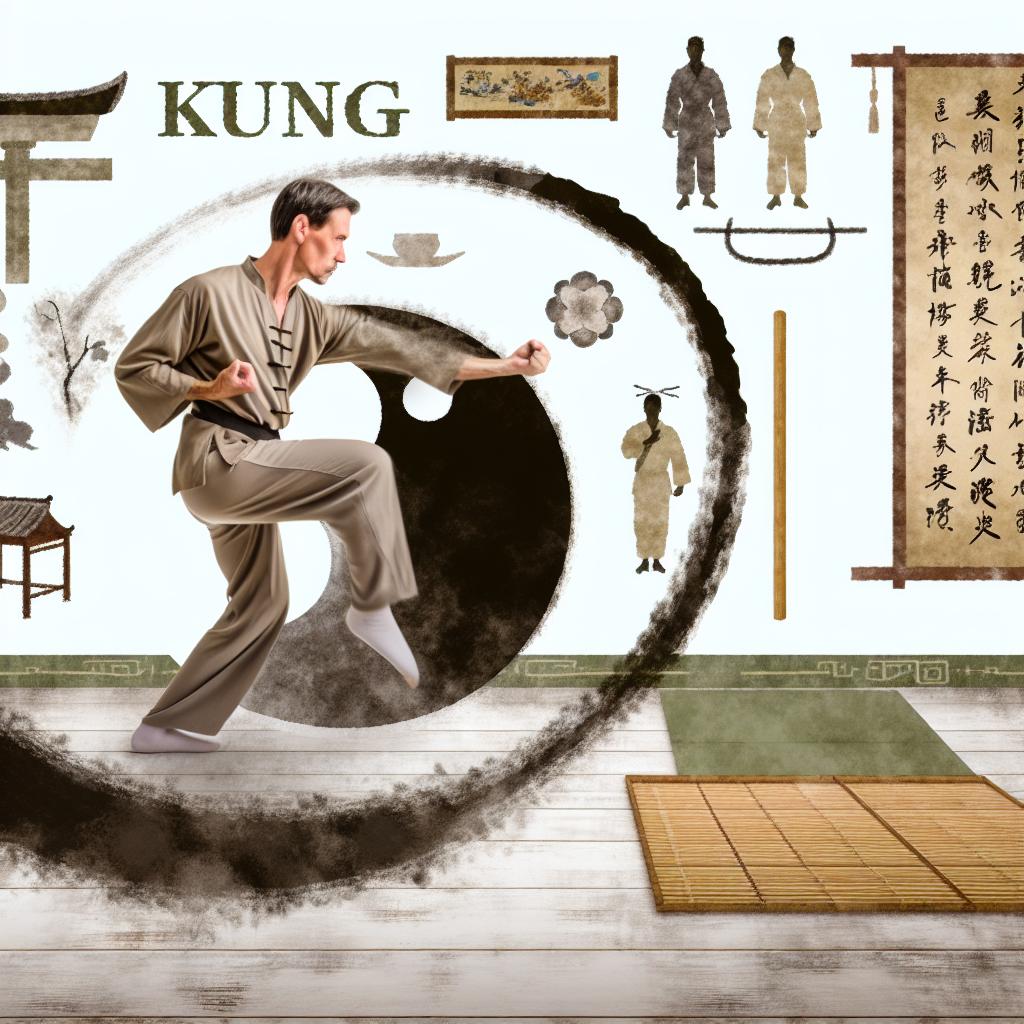
The Role of Kung Fu in Conveying Justice and Morality
Kung Fu, a profound martial art rooted in Chinese tradition, embodies a multifaceted approach that goes beyond self-defense and physical training. Its core is entrenched in rich philosophical teachings, addressing essential themes of justice and morality. This foundation is deeply embedded in Chinese culture and philosophy, thereby permeating the practice and providing both practitioners and observers a structured approach to ethics and lawful conduct.
Historical Context and Philosophical Foundation
The evolution of Kung Fu has been intricately shaped by prominent Chinese philosophies such as Confucianism, Buddhism, and Taoism. Each philosophy contributes uniquely to the art’s focus on balance, harmony, and ethical behavior.
Confucianism is central to understanding the moral landscape of Kung Fu, as it emphasizes righteousness and the maintenance of social roles and hierarchies. Practitioners are taught to uphold an ethical framework that includes respect for elders, adherence to traditional values, and commitment to societal duties.
Taoism, on the other hand, imbues Kung Fu with the principle of acting in accordance with the natural world. It promotes simplicity and spontaneity, suggesting that actions should flow naturally and harmoniously without undue force. This aspect of Taoist philosophy encourages the practice of Kung Fu as an engagement with the world in a balanced and harmonious manner.
Buddhism adds a layer of compassion and mindfulness to the practice. The incorporation of Buddhist ideals encourages practitioners to develop internal peace and extend that peace to others, thus reinforcing behaviors that align with compassion, neutrality, and understanding, key elements in moral conduct.
These philosophical tenets collectively provide Kung Fu practitioners with a framework for understanding and applying the concepts of justice and morality in everyday life.
Justice as Balance and Harmony
The concept of justice within Kung Fu is primarily viewed through the lens of balance and harmony, resonating strongly with **Taoist** principles. This philosophical standpoint asserts that justice is achieved as a natural state when opposing forces reach equilibrium, as represented by the yin and yang symbol.
For practitioners, embodying justice means striving for balance in every action. In martial practice, this is reflected in the idea that true strength is not measured by physical dominance but by the ability to sustain peace and avoid unnecessary conflict. The Kung Fu approach to justice cultivates qualities such as patience, moderation, and restraint, emphasizing that the highest form of strength lies in controlling aggression rather than wielding it recklessly.
Morality Through Discipline and Respect
Central to Kung Fu is the cultivation of rigorous discipline, which in turn fosters a profound sense of morality. This is achieved through a structured regimen that demands respect at multiple levels—beginning with self-respect, extending to teachers and mentors, and embracing opponents in practice settings.
This emphasis on respect is fundamental in creating an ethical martial artist. Practitioners are trained to harness their skills in a constructive manner, ensuring that their knowledge is used for the promotion of peace and protection rather than for dominance or aggression. In the disciplined environment of Kung Fu, the moral character is continuously nurtured, reinforcing values that define ethical behavior and conduct.
Real-world Applications and Cultural Impact
Kung Fu’s influence on justice and morality extends beyond the dojo and into broader cultural narratives. Throughout history, storied figures and legends of Kung Fu have embodied principles of justice and morality, often depicting tales where individuals stand against oppression and fight for equity.
One of the prominent depictions is seen in the legendary accounts of the **Shaolin monks**, who are celebrated not only for their formidable martial skills but also for their unwavering commitment to altruism and their moral integrity. These narratives are instrumental in reinforcing and popularizing the ethical dimensions of Kung Fu, offering examples for practitioners to emulate.
In modern times, Kung Fu’s cultural imprint is profoundly visible in popular media. Films and television series often depict Kung Fu artists as embodiments of virtue and ethical fortitude, using their craft for honorable and just causes. Such portrayals help to further solidify Kung Fu as a vehicle for conveying justice and morality, embedding its philosophical ideals deeply into the fabric of contemporary culture.
Conclusion
Kung Fu’s teachings on justice and morality are inextricably linked to its philosophical origins, offering a disciplined approach to ethical living. By advocating principles of balance, respect, and responsibility, Kung Fu provides a nuanced understanding of what it means to act justly and ethically. For those who practice or admire the art, Kung Fu stands as a powerful testament to the potential of a disciplined mind and body, serving the enduring truths of justice, morality, and ethical conduct in an increasingly complex world. Such is the legacy of Kung Fu: a reminder that through balance and discipline, one can achieve not only personal excellence but also contribute positively to society at large.
This article was last updated on: May 24, 2025

